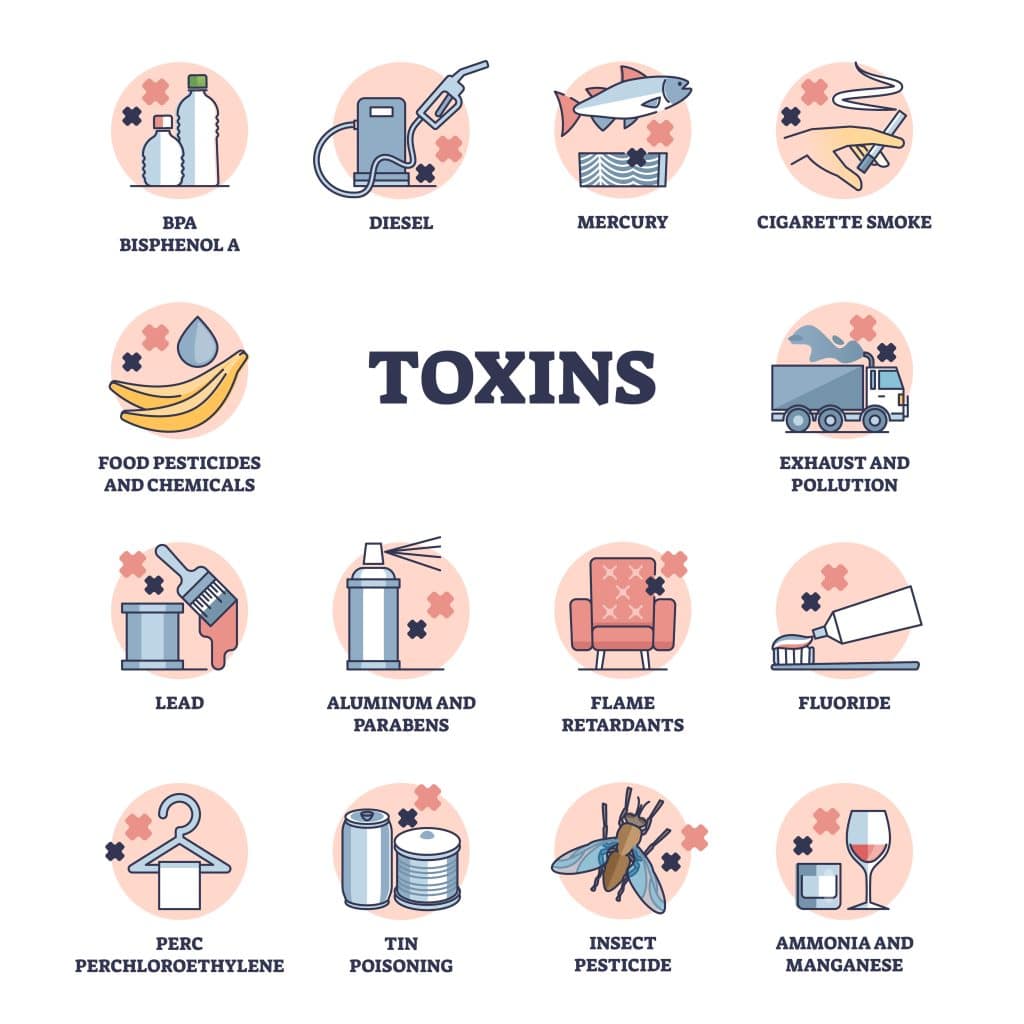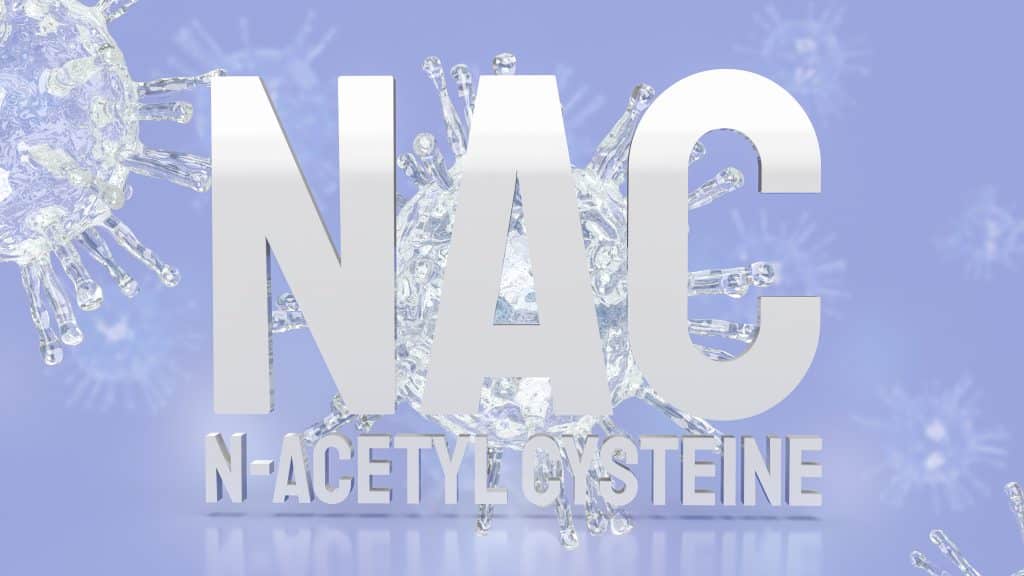How To Increase Healthspan – Lifestyle, Fasting, And Supplementation
If we increase healthspan, we can continue to do all the things we love for longer. The term “healthspan” refers to the number of years in which an individual is healthy and free from disease. It is a concept that has gained significant attention in recent years as people strive to live longer, healthier lives. While lifespan refers to the total number of years a person lives, healthspan focuses on the quality of those years.
As we age, our bodies become more susceptible to illnesses and chronic diseases such as heart disease. However, research has shown that there are certain lifestyle choices we can make to increase our healthspan and decrease our risk of developing these diseases.
How To Increase Healthspan – Nutrition
One key factor in maintaining a healthy body is through nutrition. Eating a balanced diet that includes plenty of low-glycemic fruits, vegetables, grass-fed meat, omega-3 rich fish, nuts, seeds, and other healthy fats provides our bodies with the necessary vitamins, minerals, and nutrients to function properly. Additionally, reducing our intake of processed foods and sugary drinks can help prevent weight gain and lower our risk of obesity-related diseases.1
Read more about eating a healthy diet.
How To Increase Healthspan – Regular Exercise
Exercise is another crucial component in improving healthspan. Regular physical activity not only helps to maintain a healthy weight, but it also strengthens muscles and bones, improves cardiovascular health, and boosts the immune system. At least 150 minutes of moderate exercise or 75 minutes of vigorous exercise per week are required for adults to reap these benefits.2

How To Increase Healthspan – Managing Stress
In addition to nutrition and exercise, managing stress levels is essential for a healthy body and mind. Chronic stress has been linked to numerous health issues such as high blood pressure, heart disease, and depression. Engaging in activities such as meditation, yoga, or spending time in nature can help reduce stress and promote overall well-being.3
How To Increase Healthspan – Adequate Sleep
Another key element in increasing healthspan is getting enough quality sleep. Sleep is crucial for our bodies to repair and rejuvenate itself. Chronic lack of sleep can lead to various health problems such as weakened immune system, weight gain, and cognitive impairment. Adults should aim for 7-9 hours of quality sleep each night.4
How To Increase Healthspan – Avoiding Toxic Chemicals
Toxic chemicals are present in many products we use on a daily basis. They can come from various sources such as environmental pollutants, processed foods, cleaning products, personal care products, and even the air we breathe. These chemicals can have adverse effects on our health and contribute to chronic diseases such as cardiovascular disease, and respiratory issues.5
Some common toxins include heavy metals like mercury and lead, pesticides used on fruits and vegetables, chemicals found in plastics and food packaging materials, and contaminants in water such as chlorine and fluoride. Pesticides and herbicides used in conventional agriculture can contaminate our food and water supply. Choosing organic produce and meats can significantly reduce exposure to these chemicals.
Additionally, being aware of potential toxins in your environment is crucial. This includes avoiding products with BPA (a chemical found in plastic), using non-toxic cookware, and regularly testing for radon gas in your home.6 The list of chemicals goes on and they are so common that they are hard to avoid. In any case, being aware of these chemicals makes it easier to avoid them.
One way to reduce exposure to harmful chemicals is by choosing natural or organic options for household and personal care products. This includes things like natural cleaners, organic skincare and makeup products, and using essential oils instead of synthetic fragrances.
Read more about common chemicals we should avoid.

How To Increase Healthspan – Removing Heavy Metals From The Body
Oral chelation therapy using DMSA and ALA has the potential to improve healthspan in various ways.7 8 Removing heavy metals from the body reduces oxidative stress. Heavy metal toxicity can increase oxidative stress in the body, leading to cellular damage and accelerated aging. Oral chelation helps remove these toxic substances, reducing oxidative stress, and promoting longevity.9
Heavy metals accumulate in the brain and impair cognitive function. By removing these toxins, oral chelation can potentially improve memory, focus, and overall brain health.10
Heavy metal toxicity has been linked to an increased risk of heart disease. Oral chelation may help reduce this risk by removing heavy metals from the body and improving blood flow.11
Heavy metals suppress the immune system, making individuals more susceptible to infections and chronic illnesses. Oral chelation can help restore proper immune function by removing these toxic substances.
Chronic inflammation occurs when the immune system is constantly activated due to a perceived threat or injury. Heavy metals trigger an inflammatory response as our immune cells try to remove them from the body. However, if these heavy metals continue to accumulate, our immune system stays in a constant state of activation, leading to chronic inflammation.
Chronic inflammation not only damages healthy cells but also impairs their ability to repair and regenerate. This can lead to various age-related diseases and conditions, including arthritis, heart disease, and neurodegenerative diseases. By removing heavy metals from the body we can significantly increase healthspan.12
Read more about removing heavy metals from the body.
How To Increase Healthspan – Fasting
Fasting is an ancient practice that has gained a lot of popularity in recent years, especially for its health benefits. It involves abstaining from food for a certain period of time, with the aim of achieving physical, mental, and spiritual benefits.
While fasting is often associated with religious practices, it has also been proven to have numerous health benefits. One of the most notable benefits is its ability to increase healthspan.13
Fasting helps increase healthspan by boosting the immune system. Fasting triggers autophagy, a process where old and damaged cells are broken down and replaced with new ones. This helps to boost the immune system and keep it strong, which is important for maintaining good health and preventing diseases.14
Fasting has been shown to reduce inflammation in the body. Fasting also promotes weight loss. Obesity is a known risk factor for many chronic diseases. Fasting can help with weight loss by reducing calorie intake, increasing metabolism and promoting fat burning.15
Read more about how to burn fat.
Insulin resistance is another risk factor for various diseases such as cardiovascular disease. Studies have shown that fasting can improve insulin sensitivity and lower blood sugar levels, reducing the risk of these diseases.16
Read more about insulin resistance.
HGH is a hormone that plays a crucial role in cell regeneration and tissue repair. As we age, the production of HGH decreases, but fasting has been shown to increase its production, promoting anti-aging effects.17
Read more about the benefits of fasting.
How To Increase Healthspan – Supplements
For the most part, I believe a healthy lifestyle along with regular fasting is enough for most people to increase healthspan. However, advances in science are showing us that there are certain supplements that are increasing both healthspan and lifespan. This is not an exhaustive list of life extension supplements, but a few of the most notable.
How To Increase Healthspan – Correcting Mineral Imbalances
Minerals play a crucial role in maintaining our overall health and well-being. They are involved in various bodily functions such as regulating hormones, supporting the immune system, and aiding in cellular repair and growth. However, many of us may not be aware that imbalances in mineral levels can contribute to certain health issues and even shorten our lifespan.18
One common imbalance that often goes undiagnosed is excess calcium buildup. While calcium is essential for strong bones and teeth, excessive levels of this mineral can lead to calcification, the hardening or stiffening of tissues due to the deposition of calcium salts. This can cause problems such as kidney stones, heart disease, and even premature aging.19
On the other hand, deficiencies in other minerals like magnesium or potassium can also have negative effects on our health. Magnesium, for example, is involved in over 300 enzyme reactions and is crucial for energy production, nerve and muscle function, and maintaining a healthy heart rhythm. Deficiencies in this mineral can lead to fatigue, muscle cramps, abnormal heart rhythms, and even increase the risk of hypertension.20
To maintain optimal healthspan, it is important to address any imbalances in mineral levels with both diet and supplementation.
Read more about common mineral and vitamin deficiencies.
How To Increase Healthspan – NAC And Glycine Supplementation
After the age of 45, the Glutathione antioxidant system becomes less efficient. To improve glutathione production, we can supplement with the precursors N-acetylcysteine (NAC) and glycine.21
NAC, also known as acetylcysteine, is a precursor to the amino acid cysteine and plays an important role in the production of glutathione, a powerful antioxidant in the body. Glutathione helps protect cells from damage caused by free radicals and toxins, and is crucial for maintaining good health.22
Glycine is an amino acid that has been shown to have numerous health benefits. It is involved in the formation of collagen, which is essential for healthy skin, bones, and joints. Glycine also supports liver function and aids in detoxification.23
Together, NAC and glycine work synergistically to improve overall healthspan as demonstrated in a 2022 study.24

How To Increase Healthspan – Taurine Supplementation
Taurine is an amino acid that plays a crucial role in maintaining overall health and wellbeing. It is found abundantly in the human body, particularly in the brain, heart, eyes, and muscles. Taurine supplementation has gained popularity in recent years for its potential benefits in increasing healthspan.
Taurine is known to have antioxidant and anti-inflammatory properties, which can help protect against chronic diseases such as heart disease, and neurodegenerative disorders. It also plays a role in energy metabolism and maintaining healthy blood pressure levels. However, the most significant benefit of taurine supplementation is its ability to increase healthspan in animal models.25
One way taurine helps increase healthspan is by supporting mitochondrial function. Mitochondria are known as the “powerhouses” of our cells, responsible for producing energy. As we age, mitochondrial function declines, leading to a decrease in overall energy levels. Taurine helps maintain healthy mitochondrial function, thereby improving energy production and reducing fatigue.26
Moreover, taurine supplementation has been linked to improved cognitive function and brain health. Studies have shown that taurine can protect against age-related cognitive decline and improve memory.
How To Increase Healthspan
By making healthy lifestyle choices such as eating a balanced diet, staying physically active, managing stress levels, getting enough quality sleep, fasting, and proper supplementation we can increase our healthspan and live longer, healthier lives.
Read more about how detoxification and longevity go hand in hand.
References
1 Wickramasinghe K, Mathers JC, Wopereis S, Marsman DS, Griffiths JC. From lifespan to healthspan: the role of nutrition in healthy ageing. J Nutr Sci. 2020 Aug 24;9:e33. doi: 10.1017/jns.2020.26. PMID: 33101660; PMCID: PMC7550962.
2 Guan Y, Yan Z. Molecular Mechanisms of Exercise and Healthspan. Cells. 2022 Mar 3;11(5):872. doi: 10.3390/cells11050872. PMID: 35269492; PMCID: PMC8909156.
3 Yegorov YE, Poznyak AV, Nikiforov NG, Sobenin IA, Orekhov AN. The Link between Chronic Stress and Accelerated Aging. Biomedicines. 2020 Jul 7;8(7):198. doi: 10.3390/biomedicines8070198. PMID: 32645916; PMCID: PMC7400286.
4 Sambou ML, Zhao X, Hong T, Naveed M, Sambou A, El Hafa F, Basnet TB, Dai J. Investigation of the relationships between sleep behaviors and risk of healthspan termination: a prospective cohort study based on 323,373 UK-Biobank participants. Sleep Breath. 2022 Mar;26(1):205-213. doi: 10.1007/s11325-021-02394-0. Epub 2021 May 6. PMID: 33959859.
5 Zhao F, Li L, Chen Y, Huang Y, Keerthisinghe TP, Chow A, Dong T, Jia S, Xing S, Warth B, Huan T, Fang M. Risk-Based Chemical Ranking and Generating a Prioritized Human Exposome Database. Environ Health Perspect. 2021 Apr;129(4):47014. doi: 10.1289/EHP7722. Epub 2021 Apr 30. PMID: 33929905; PMCID: PMC8086799.
6 Cimmino I, Fiory F, Perruolo G, Miele C, Beguinot F, Formisano P, Oriente F. Potential Mechanisms of Bisphenol A (BPA) Contributing to Human Disease. Int J Mol Sci. 2020 Aug 11;21(16):5761. doi: 10.3390/ijms21165761. PMID: 32796699; PMCID: PMC7460848.
7 Zalups RK, Bridges CC. Relationships between the renal handling of DMPS and DMSA and the renal handling of mercury. Chem Res Toxicol. 2012 Sep 17;25(9):1825-38. doi: 10.1021/tx3001847. Epub 2012 Jun 15. PMID: 22667351; PMCID: PMC4640686.
8 Sears ME. Chelation: harnessing and enhancing heavy metal detoxification–a review. ScientificWorldJournal. 2013 Apr 18;2013:219840. doi: 10.1155/2013/219840. PMID: 23690738; PMCID: PMC3654245.
9 Valko, M., Morris, H., & Cronin, M. T. (2005). Metals, toxicity and oxidative stress. Current medicinal chemistry, 12(10), 1161–1208. https://doi.org/10.2174/0929867053764635
10 Sasaki N, Carpenter DO. Associations between Metal Exposures and Cognitive Function in American Older Adults. Int J Environ Res Public Health. 2022 Feb 17;19(4):2327. doi: 10.3390/ijerph19042327. PMID: 35206515; PMCID: PMC8871766.
11 Cortés, S., Zúñiga-Venegas, L., Pancetti, F., Covarrubias, A., Ramírez-Santana, M., Adaros, H., & Muñoz, L. (2021). A Positive Relationship between Exposure to Heavy Metals and Development of Chronic Diseases: A Case Study from Chile. International journal of environmental research and public health, 18(4), 1419. https://doi.org/10.3390/ijerph18041419
12 Duan L, Rao X, Sigdel KR. Regulation of Inflammation in Autoimmune Disease. J Immunol Res. 2019 Feb 28;2019:7403796. doi: 10.1155/2019/7403796. PMID: 30944837; PMCID: PMC6421792.
13 “History of Fasting.” All About Fasting: For Health and Healing. http://www.allaboutfasting.com/history-of-fasting.html.
14 Antunes F, Erustes AG, Costa AJ, Nascimento AC, Bincoletto C, Ureshino RP, Pereira GJS, Smaili SS. Autophagy and intermittent fasting: the connection for cancer therapy? Clinics (Sao Paulo). 2018 Dec 10;73(suppl 1):e814s. doi: 10.6061/clinics/2018/e814s. PMID: 30540126; PMCID: PMC6257056.
15 Mozaffarian, Dariush, Tao Hao, Eric B. Rimm, Walter C. Willett, and Frank B. Hu. “Changes in Diet and Lifestyle and Long-Term Weight Gain in Women and Men.” New England Journal of Medicine 364, no. 25 (June 23, 2011): 2392-404. doi:10.1056/nejmoa1014296. http://www.nejm.org/doi/full/10.1056/NEJMoa1014296?query=TOC#t=articleTop.
16 Barazzoni R, Gortan Cappellari G, Ragni M, Nisoli E. Insulin resistance in obesity: an overview of fundamental alterations. Eat Weight Disord. 2018 Apr;23(2):149-157. doi: 10.1007/s40519-018-0481-6. Epub 2018 Feb 3. PMID: 29397563.
17 Ho KY, Veldhuis JD, Johnson ML, Furlanetto R, Evans WS, Alberti KG, Thorner MO. Fasting enhances growth hormone secretion and amplifies the complex rhythms of growth hormone secretion in man. J Clin Invest. 1988 Apr;81(4):968-75. doi: 10.1172/JCI113450. PMID: 3127426; PMCID: PMC329619.
18 Shao A, Drewnowski A, Willcox DC, Krämer L, Lausted C, Eggersdorfer M, Mathers J, Bell JD, Randolph RK, Witkamp R, Griffiths JC. Optimal nutrition and the ever-changing dietary landscape: a conference report. Eur J Nutr. 2017 May;56(Suppl 1):1-21. doi: 10.1007/s00394-017-1460-9. PMID: 28474121; PMCID: PMC5442251.
19 Liu W, Zhang Y, Yu CM, Ji QW, Cai M, Zhao YX, Zhou YJ. Current understanding of coronary artery calcification. J Geriatr Cardiol. 2015 Nov;12(6):668-75. doi: 10.11909/j.issn.1671-5411.2015.06.012. PMID: 26788045; PMCID: PMC4712374.
20 Al Alawi AM, Majoni SW, Falhammar H. Magnesium and Human Health: Perspectives and Research Directions. Int J Endocrinol. 2018 Apr 16;2018:9041694. doi: 10.1155/2018/9041694. PMID: 29849626; PMCID: PMC5926493.
21 Jones DP, Mody VC Jr, Carlson JL, Lynn MJ, Sternberg P Jr. Redox analysis of human plasma allows separation of pro-oxidant events of aging from decline in antioxidant defenses. Free Radic Biol Med. 2002 Nov 1;33(9):1290-300. doi: 10.1016/s0891-5849(02)01040-7. PMID: 12398937.
22 Tenório MCDS, Graciliano NG, Moura FA, Oliveira ACM, Goulart MOF. N-Acetylcysteine (NAC): Impacts on Human Health. Antioxidants (Basel). 2021 Jun 16;10(6):967. doi: 10.3390/antiox10060967. PMID: 34208683; PMCID: PMC8234027.
23 Soh J, Raventhiran S, Lee JH, Lim ZX, Goh J, Kennedy BK, Maier AB. The effect of glycine administration on the characteristics of physiological systems in human adults: A systematic review. Geroscience. 2023 Oct 18. doi: 10.1007/s11357-023-00970-8. Epub ahead of print. PMID: 37851316.
24 Premranjan Kumar, Chun Liu, James Suliburk, Jean W Hsu, Raja Muthupillai, Farook Jahoor, Charles G Minard, George E Taffet, Rajagopal V Sekhar, Supplementing Glycine and N-Acetylcysteine (GlyNAC) in Older Adults Improves Glutathione Deficiency, Oxidative Stress, Mitochondrial Dysfunction, Inflammation, Physical Function, and Aging Hallmarks: A Randomized Clinical Trial, The Journals of Gerontology: Series A, Volume 78, Issue 1, January 2023, Pages 75–89, https://doi.org/10.1093/gerona/glac135
25 Singh P, Gollapalli K, Mangiola S, Schranner D, Yusuf MA, Chamoli M, Shi SL, Lopes Bastos B, Nair T, Riermeier A, Vayndorf EM, Wu JZ, Nilakhe A, Nguyen CQ, Muir M, Kiflezghi MG, Foulger A, Junker A, Devine J, Sharan K, Chinta SJ, Rajput S, Rane A, Baumert P, Schönfelder M, Iavarone F, di Lorenzo G, Kumari S, Gupta A, Sarkar R, Khyriem C, Chawla AS, Sharma A, Sarper N, Chattopadhyay N, Biswal BK, Settembre C, Nagarajan P, Targoff KL, Picard M, Gupta S, Velagapudi V, Papenfuss AT, Kaya A, Ferreira MG, Kennedy BK, Andersen JK, Lithgow GJ, Ali AM, Mukhopadhyay A, Palotie A, Kastenmüller G, Kaeberlein M, Wackerhage H, Pal B, Yadav VK. Taurine deficiency as a driver of aging. Science. 2023 Jun 9;380(6649):eabn9257. doi: 10.1126/science.abn9257. Epub 2023 Jun 9. PMID: 37289866.
26 Jong CJ, Sandal P, Schaffer SW. The Role of Taurine in Mitochondria Health: More Than Just an Antioxidant. Molecules. 2021 Aug 13;26(16):4913. doi: 10.3390/molecules26164913. PMID: 34443494; PMCID: PMC8400259.
27 Rafiee Z, García-Serrano AM, Duarte JMN. Taurine Supplementation as a Neuroprotective Strategy upon Brain Dysfunction in Metabolic Syndrome and Diabetes. Nutrients. 2022 Mar 18;14(6):1292. doi: 10.3390/nu14061292. PMID: 35334949; PMCID: PMC8952284.




